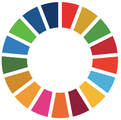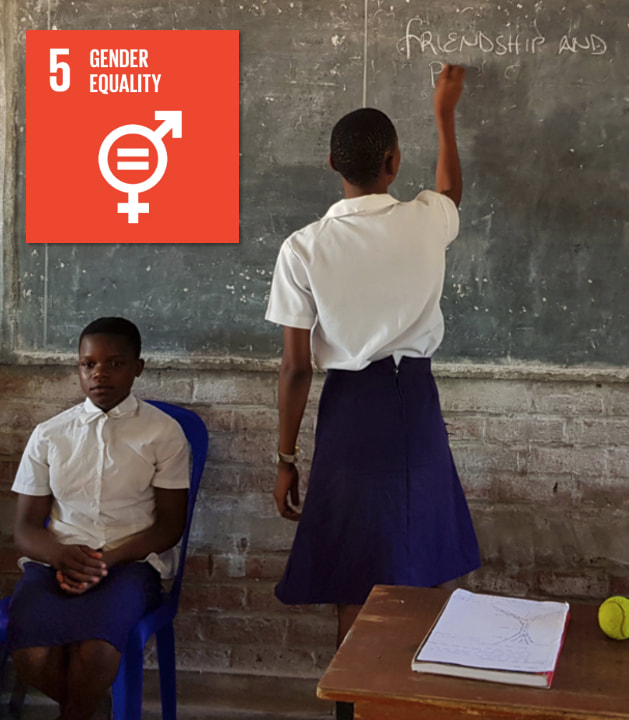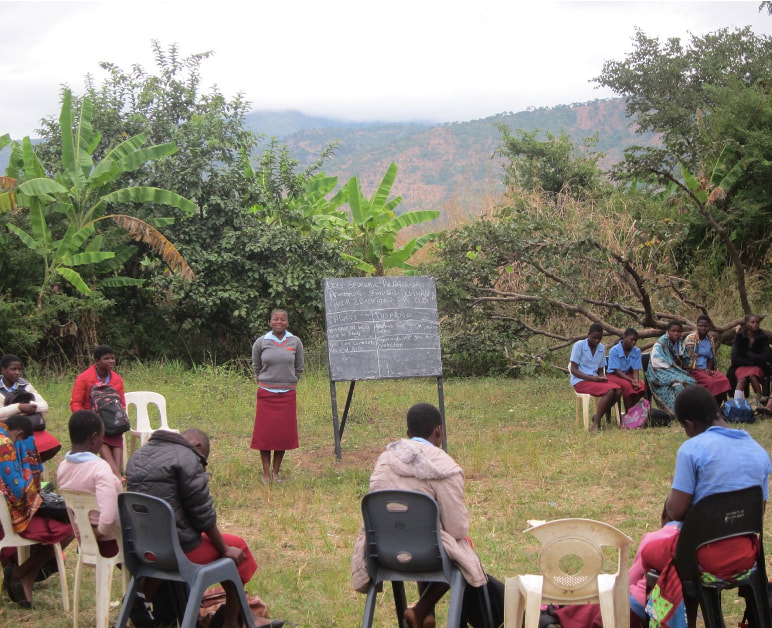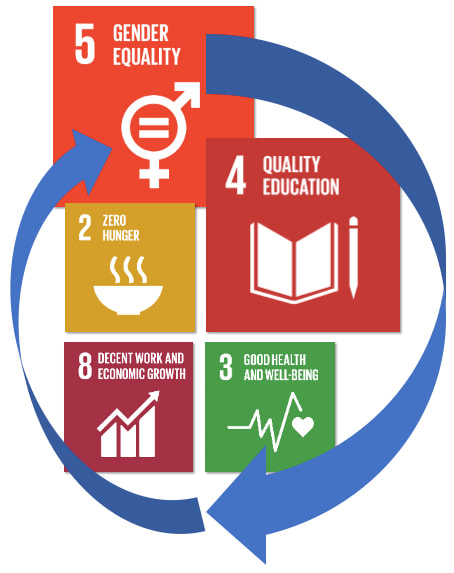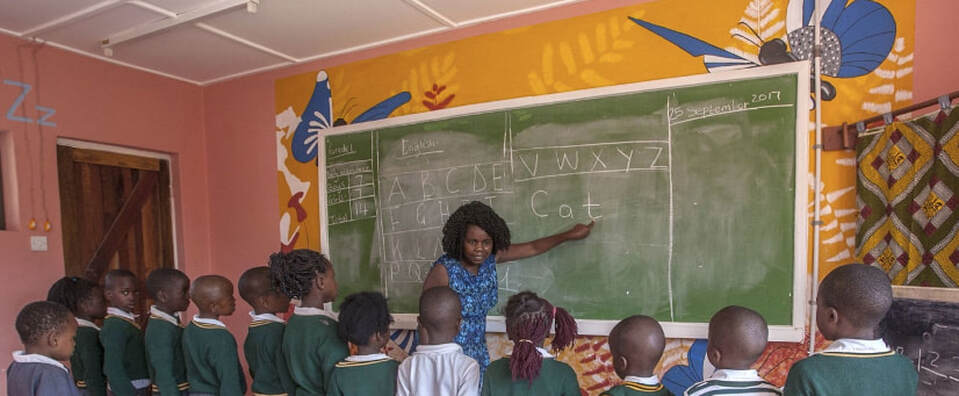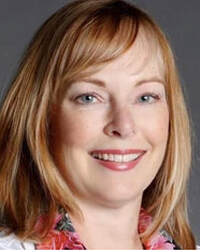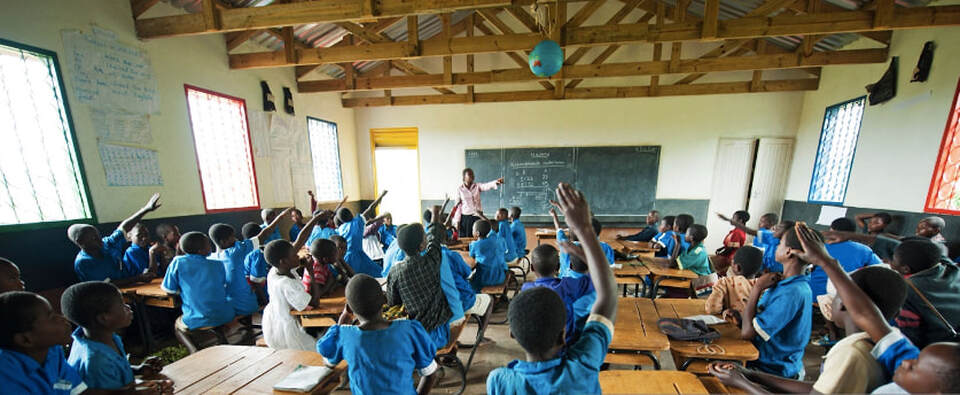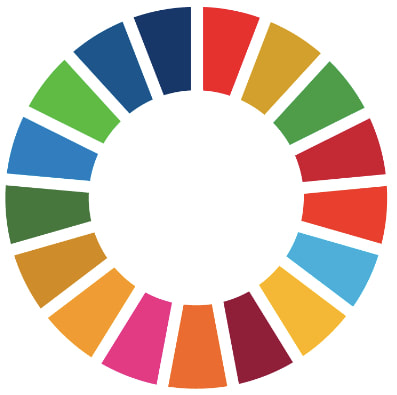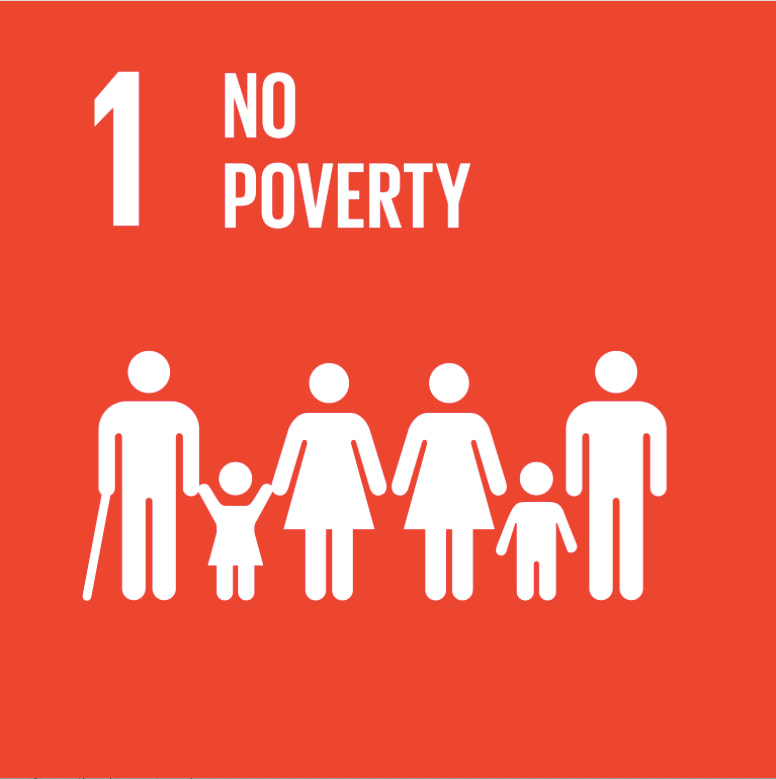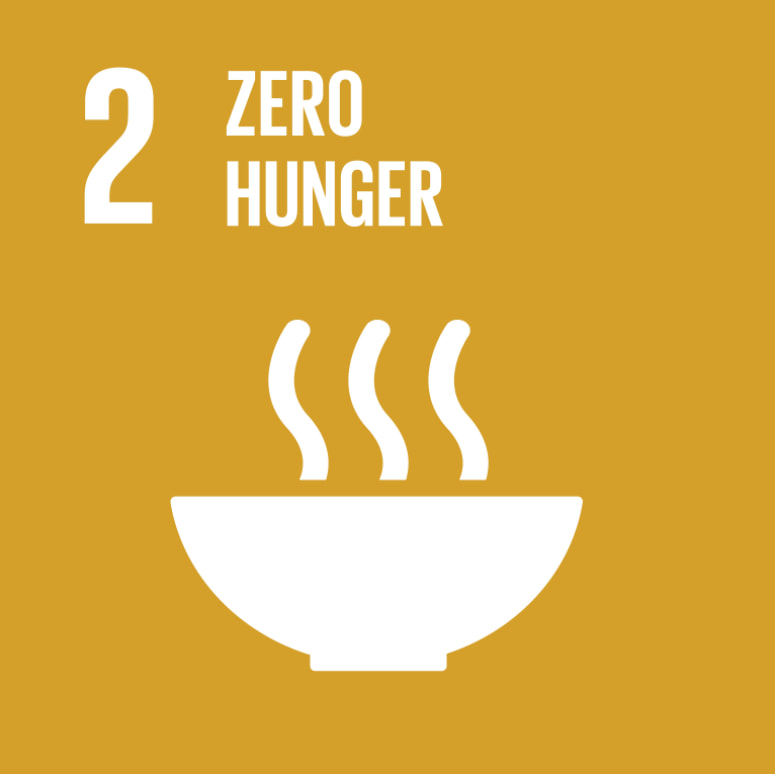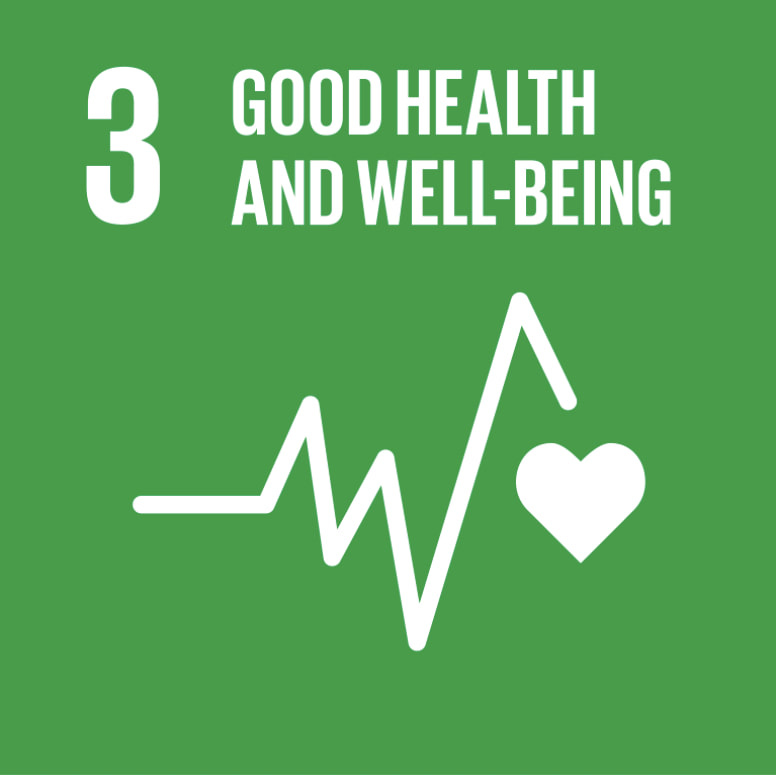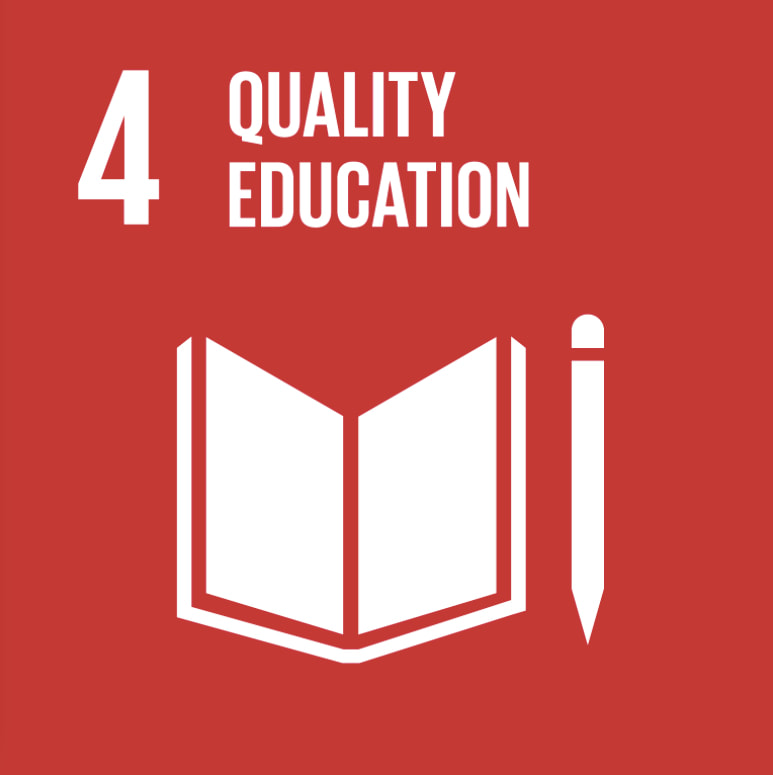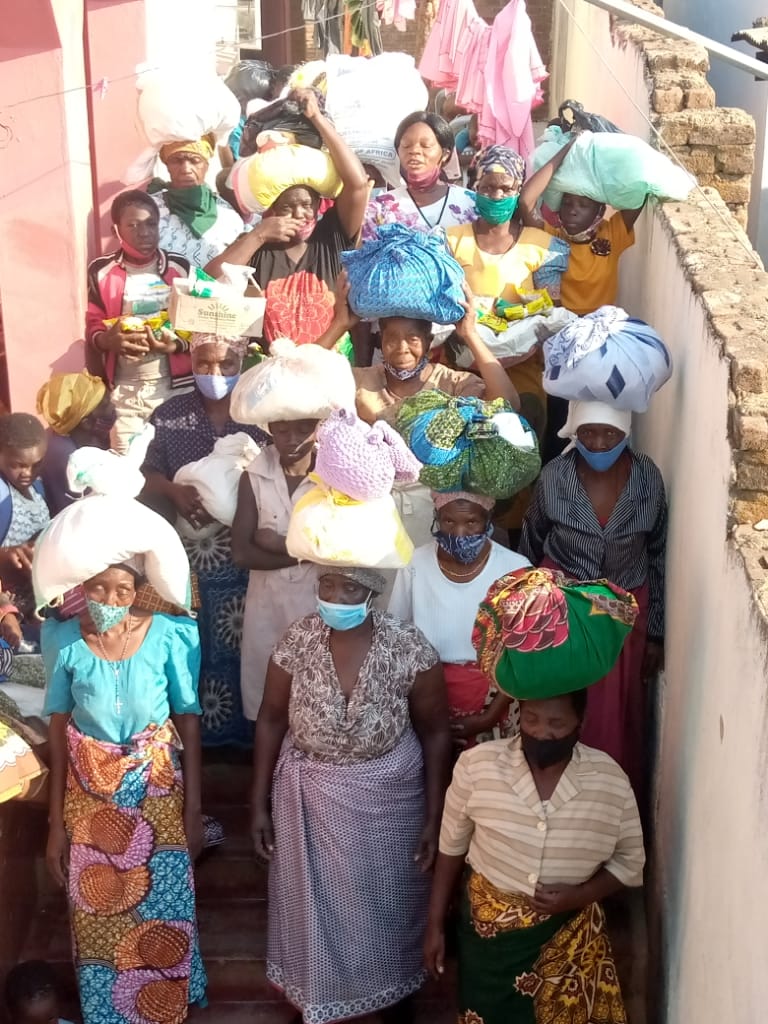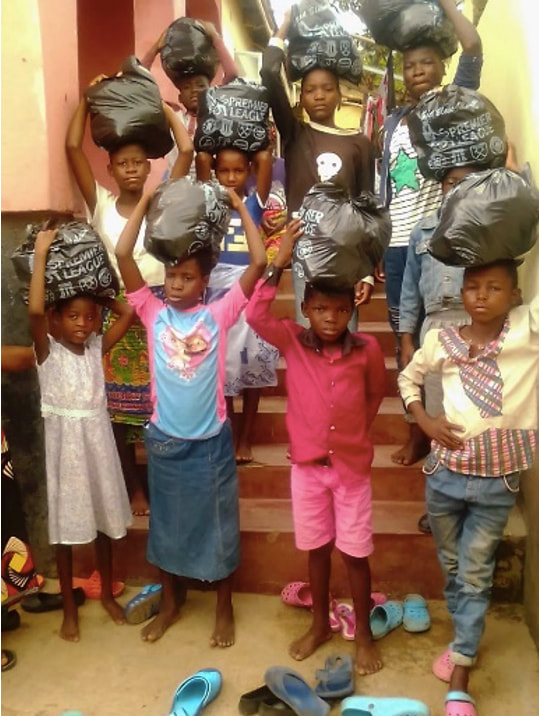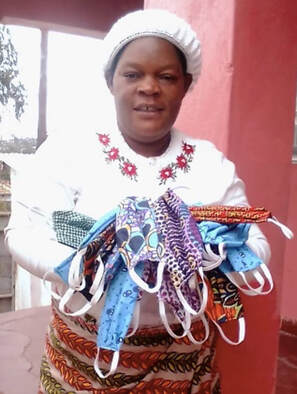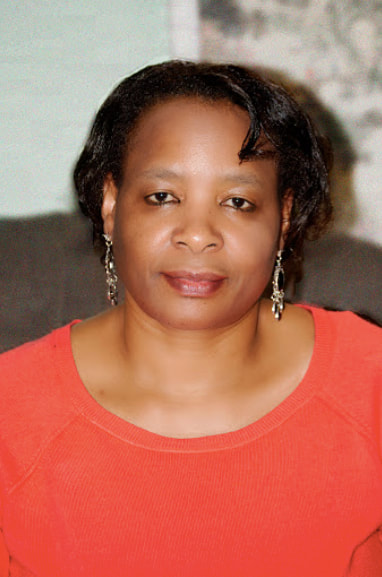|
DATELINE: OCTOBER, 2021 |
Advancing Quality Education For Girls in Malawi:
Steps to Meeting SDG #5
Steps to Meeting SDG #5
|
by Sonia Caranci & Emma Lee
York University / HH/NURS Course 4546 *** Women and girls across the globe face the disparity of lack of quality education. Equal access to education is a fundamental human right that needs to be met in order for the United Nations’ Sustainable Development Goal 5 to be reached by 2030. The goal is to achieve gender equality and empower all women and girls. To explore the local initiatives being made to address barriers to girls’ education in order to meet SDG 5, we travelled to a school in Malawi, a land-locked country in Africa, to meet with women and girls who are part of AGE Africa’s Creating Healthy Approaches to Success (CHATS) program.
“Equal access to education is a fundamental human right...”
|
Girl teaching a class about friendship. Copyright 2019 AGE Africa. / SDG 5 Logo from UN.org
|
|
In Malawi, with a population of almost 20 million, only six percent of female students graduate from high school. The percentage grows even smaller with completion of higher education, in which female students account for less than one percent. Furthermore, statistics show a significant disparity in enrollment rate amongst male and female students, with the number being twice as many, respectively.
|
But “In Malawi....only six percent of female students graduate from high school.”
|
This begs us to ask the question,
why does this discrepancy among young girls and women exist?
why does this discrepancy among young girls and women exist?
Malawian girls and women are faced with multiple barriers that hinder their access to quality education. Systemic poverty, traditional and cultural beliefs, child marriage, and lack of familial support are just a few of the influencing factors. The lack of education provided has severe physical, psychological, social, and economic repercussions. Young women are uneducated on health promoting behaviours and thus, are more likely to engage in unsafe health practices.
|
Young girl teaching in Malawi. Copyright 2021 Together Women Rise Org.
|
The education crisis in Malawi led to the creation of AGE Africa’s Creating Healthy Approaches to Success (CHATS) program. Established in 2013, the CHATS program serves 480 young women across 8 schools in Malawi. CHATS is a weekly after-school program run by girls, for girls, that helps them negotiate the challenges of continuing education while helping them build their core life skills. By teaching the girls a curriculum that combines sexual and reproductive health, gender-based violence awareness and prevention, career guidance, and self-advocacy, this broad-based education is equipping young women and girls with life skills and technical skills.
|
|
“...milestones for reversing nationwide trends such as delaying early marriage and pregnancy for young women and girls.”
|
The implementation of CHATS has demonstrated much success. Almost ninety percent of students complete four years of high school and over fifty percent will continue to higher education. Not only does the program equip young learners with knowledge and a skill set that allows them to pursue careers, it creates “a positive cycle of education and empowerment” which is passed through the generations. AGE Africa’s programs, including CHATS have led to milestones for reversing nationwide trends such as delaying early marriage and pregnancy for young women and girls.
|
|
After getting to know the members at CHATS and their mission, it is clear that this program is directly related to SDG 5. CHATS aims to break through gender stereotypes and traditional beliefs about women and girls that constantly put them at a disadvantage. By providing girls with life and technical skills, CHATS encourages girls to become agents of change by increasing their self-esteem and assertiveness, empowering them to make decisions that will move them in the right direction for successful futures.
|
“encouraging girls to become agents of change by increasing their self-esteem and assertiveness.”
|
|
SDG Logos from UN.org
|
Implementing Change in Malawi
To meet SDG 5, the gender disparities that exist between women and men in developing countries, such as Malawi, need to be eliminated. If this basic human right is continually neglected, it will be impossible for us to achieve SDG 5 by 2030. Women and girls around the globe are disproportionately neglected the human right of quality education. In order to meet the United Nations’ Sustainable Development Goal five, which is to achieve gender equality and empower all women and girls, the lack of quality education for this population must be addressed. Education has a substantial impact on health, lifestyle, food security, and income, therefore to ensure women and girls are empowered and equal, they must attain quality education. By addressing barriers to education, support and initiatives from global and local organizations, such as UNICEF and AGE Africa’s CHATS program, can be targeted towards removing them. We suggest that to improve the turnout and participation from girls, schools must establish a safe space for them to be secure, healthy, encouraging, and assertive.
|
|
“Education has a substantial impact on health, lifestyle, food security and income.”
|
Memory Chazeza Mdyetseni has become a source of hope for the underprivileged girls in Malawi by providing quality secondary education. Copyright 2017 Amos Gumulira.
|
“Nurse leaders at all levels are being called to action
to advocate for empowerment and equality in education for women and girls around the globe. ” |
By exploring this global health challenge, nurses are able to gain insight into health disparities that affect women and girls, provoking conversation and allowing them to generate new ideas regarding ethically competent care. Nurse leaders at all levels are being called to action to advocate for empowerment and equality in education for women and girls around the globe. In order for nurses to advance the SDGs, nurses must make the topic of SDGs a routine part of not only professional conversations, but also personal ones. Nurses have the capacity to identify, implement, and evaluate a strengths-based approach that can engage communities addressing health issues on all levels. Nurses must partner with their communities to uplift their voices in promoting healthy activities and influencing the eradication of poverty and hunger. When given the right platform, utilizing their knowledge and experience, nurses maintain the potential to have a significant impact on improving health and well-being for our planet and all living things on it.
|
|
“Nurses must partner with their communities to uplift their voices in promoting healthy activities and influencing the eradication of poverty and hunger. ”
|
Who We Are

Hello, I’m Sonia Caranci and I am a fourth-year nursing student. I believe nurses are the backbone of the healthcare community as they have the ability to promote real change in their clients’ lives through advocacy. It is necessary for student nurses to inform, empower and engage the world’s nurses and other concerned citizens to participate in meeting the United Nations’ Sustainable Development Goals. Student nurses have the capacity to be leaders and agents of change to support the steps needed to ensure the SDGs are met by their target date in 2030. Since nurses are on the frontlines, they have the opportunity to innovate, collaborate, and begin to make changes toward collective health and well-being. Nurses should begin to recognize which global health issues are present at their local level and build partnerships for advocacy and leadership. With this partnership, nurses can come together globally to achieve global health. * Contact Sonia >>>
|

Hi, my name is Emma Lee and I am a fourth-year nursing student. I believe it is very crucial to inform, engage and empower nurses and citizens to participate in meeting the SDGs. One of the defining features of a global health issue is the lack of specificity to one country or population, but rather impacts the health of every single individual. For this reason, collaboration, teamwork and communication is a necessity in order to achieve these goals. As a student nurse, I am in a position of education in which I can utilize my knowledge to engage in health promotion and teaching that will lead to preventative and sustainable changes in patients’ health. Furthermore, nurses have the opportunity to build therapeutic relationships with clients, creating a foundation of trust and respect among the public and healthcare providers. For these reasons, nurses are the most suitable candidates to improve quality of life and to influence positive change in our world. * Contact Emma >>>
|
|
Pupils in the classroom at Chambwe Primary School. Copyright 2012 Anthony Asael.
|
You are also welcome to submit your story. See the Guidelines >>>
OUR MULTI-FACETED 'CHILD SUPPORT PROJECT'
|
Toward achieving at least 4 of the UN's 17 Sustainable Development Goals.
“To empower communities and vulnerable groups of orphans and vulnerable children—especially for women and caregivers as they take responsibility for looking after these children.”
by Dr. Josephine Munthali
Based in Edinburgh, Scotland & collaborating with many partners in Malawi |
The Child Support Project has been established for the relief of poverty, advancement of education and improvement of social welfare of orphans and vulnerable children in necessitous circumstances. The area of benefit is in all districts in Malawi and such other countries in Africa as this organization's Executive Committee may decide. Through encouraging local people to be involved in this Project, it aims to create sustainable programmes and projects to reduce poverty and hunger, to improve learning environments and to improve the social welfare of these children and their communities.
|
The Child Support Project — that I formed as a registered Scottish Charity in 2001 — works in a multi-faceted and holistic approach by developing programmes to empower communities and other vulnerable groups in many inter-related ways—especially for women and caregivers as they take responsibilities of looking after orphans and vulnerable children. It is guided by the needs of the communities for its partners. In this connection, the partners are involved in needs assessment, project design and the process of implementation of programmes.
Over the years, the Child Support Project has given grants to community-based organisations, which carry out activities focused on three thematic areas: poverty reduction (development of sustainable projects), education and health. The selection criteria of such programmes must show that the target group includes orphans, vulnerable children, empowerment of women, and the poor communities. |
|
"One elderly woman carried her husband at the back to the clinic when he had asthma attack due to a lack of inhaler."
"Bicycle ambulances were purchased which helped with transportation of people to health centre as they were no ambulances."
“Mothers were trained in health, childcare, and nutrition."
“successful contributions to feeding centres for children in community-based childcare centres and schools.”
“Feeding children in schools increased enrolment and retention for children to stay in schools.”
“Communities owned this programme as they voluntarily worked in the fields.”
We also “provided cows, pigs and chickens for communities.”
Communal projects included the construction of a school block for additional classrooms and toilets.
A primary school library was set up where volunteers were sent to help and books were shipped.
"The project sank a borehole to benefit communities with clean drinking water."
We “provided a grinding mill to a community in a very remote area where women travelled over five kilometres to grind their corn.”
We “provided orphans and the elderly with food packages and educational materials” and “also distributed locally-made face masks to protect against COVID-19.”
|
Health Programme
Funding was secured for the HIV/AIDS programme for villages in Malawi. Communities were affected and infected by the HIV/AIDS scourge which contributed to child-headed households and granny-headed households. The government Health Surveillance Assistants and locally trained care givers—at local levels—managed the programme. The Child Support project staff in Malawi monitored the implementation processes of the programme. Through networking activities and involvement with my Church, doctors went to Child Support Project catchment areas and did tremendous work in improving Government rural health centers. Doctors shipped a lot of stuff from Scotland which greatly improved its services to communities. Bicycle ambulances were purchased which helped with transportation of people to health centre as they were no ambulances. Communities suffered a lot because the clinic was more than seven kilometers from the eleven villages—including a story about one elderly woman who carried her husband at the back to the clinic when he had asthma attack due to a lack of inhaler. Such were disheartening stories from communities. Community Based Child Care Centres I also led the process and set up four community-based childcare centres which provided early childhood activities for children in villages. Mothers were trained in health, childcare, and nutrition. In addition, centres provided much needed porridge for children. These centres were popular as there were no preschools in the villages. About six villages benefitted from these centres. Agricultural Programme The Chiefs in villages leased out land for these activities. Funds raised from Scotland provided seeds, materials, and other essentials that supported the agricultural programme. Communities owned this programme as they voluntarily worked in the fields. The agricultural programme successfully contributed to feeding centres for children in community-based childcare centres and schools. One of my key findings is that hunger affects children’s schooling. Therefore, feeding children in schools increased enrolment and retention for children to stay in schools. Other Programmes I secured funding for a 'livelihood programme' from a Foundation in Scotland. Our Charity provided cows, pigs, and chickens for communities. Another Foundation constructed a school block and toilet for a primary school. This improved the quality of the school because of additional classrooms and toilets. Through my connection with the Baptist Church in Scotland, the Church sent volunteers, shipped books, and set up a primary school library. These activities were much appreciated by the school's headteacher, by the Malawi Ministry of Education and by the Government. I raised funds in Scotland and the project sank a borehole to benefit communities with clean drinking water in over six villages. For sustainability purposes, communities paid a small fee to the communities for repairing the borehole. The Charity provided a grinding mill to a community in a very remote area where women travelled over five kilometres to grind their corn. Therefore, bringing services closer to the communities was one of the major mandates of the Child Support Project. The revolving funds were set up for communities who engaged in income generating activities. This project was successful but lacked sustainability as some beneficiaries were not able to pay back the loan. The Charity realized that the poorest of the poor needed seed money and not a revolving fund. For sustainability purposes, the revolving fund should be introduced when communities are able to pay back the loan. Through my presentation at a secondary school in Scotland, the Charity constructed four community centre resource centres to engage communities in various activities. Current Projects During COVID 19, I have continued to raise funds that have supported communities with cash transfers to orphans and vulnerable children and granny-headed households. In addition, the Charity has provided orphans and the elderly with food packages and educational materials. The Charity also distributed locally-made face masks to protect against COVID-19. Communities have appreciated these initiatives at a time when they faced many challenges due to COVID-19 and the government being overwhelmed with the effects of COVID-19. In 2019, the Charity also supported a feeding project at a school in another district in Malawi which improved the well-being of those school children. Future Projects The Charity plans to replicate models which communities have identified and thus produced positive outcomes in villages in Malawi. Secondly, based on lessons learnt to improve on sustainability of projects. I have learnt that communities need long-term support and to set up structures for sustainability. I have a desire to encourage Malawi people in diaspora to “pick a village and develop it” using the Child Support Project positive models. They will be encouraged to raise funds and make a difference in communities in Malawi. |
|
“I have a desire to encourage Malawi people in diaspora to “pick a village and develop it” using the Child Support Project positive models.”
|
How the Child Support Project Began
During my PhD study, women in targeted villages challenged me that many researchers collected data, asked questions, and promised to support communities but never kept their promises. Women literally requested me to support communities after I collected data for my PhD study. Whilst in Malawi, I bought artifacts and brought them to Scotland. During the Edinburgh International Annual Festivals, I set up a table outside a Church of Scotland and sold artifacts. I raised over £600 and supported communities I interviewed in Malawi. This motivated my friends and Ex Malawi Scottish missionaries who were keen to support my activities. They advised me to set up as a Scottish Charity for accountability. A small working group drew up the constitution and later registered as a Charity in Scotland. Over the years, the Charity has supported various projects which have benefitted orphans and vulnerable children and communities in Malawi. Funding has been raised from various sources including the Scottish Executive, Trusts, Schools, Churches, and individuals. Fundraising events such as 'African Breakfast' were popular as these attracted the public who enjoyed an African breakfast while also donating money for a good cause. I have presented our Child Support Project’s vision in various forums, public events, schools, and Churches in Scotland and to prominent individuals.
During my PhD study, women in targeted villages challenged me that many researchers collected data, asked questions, and promised to support communities but never kept their promises. Women literally requested me to support communities after I collected data for my PhD study. Whilst in Malawi, I bought artifacts and brought them to Scotland. During the Edinburgh International Annual Festivals, I set up a table outside a Church of Scotland and sold artifacts. I raised over £600 and supported communities I interviewed in Malawi. This motivated my friends and Ex Malawi Scottish missionaries who were keen to support my activities. They advised me to set up as a Scottish Charity for accountability. A small working group drew up the constitution and later registered as a Charity in Scotland. Over the years, the Charity has supported various projects which have benefitted orphans and vulnerable children and communities in Malawi. Funding has been raised from various sources including the Scottish Executive, Trusts, Schools, Churches, and individuals. Fundraising events such as 'African Breakfast' were popular as these attracted the public who enjoyed an African breakfast while also donating money for a good cause. I have presented our Child Support Project’s vision in various forums, public events, schools, and Churches in Scotland and to prominent individuals.
|
Introducing the Author
I am Dr. Josephine Munthali currently residing permanently in Scotland, of the United Kingdom. I am a woman educationalist from both the western and Africa traditions having obtained a PhD in Education at the University of Edinburgh, Scotland. Originally from Malawi, Africa, I maintain strong ties through various activities. I played a significant role in setting up the Child Support Project in Scotland, which supports children in Malawi. I raised the profile of Malawi through the Scotland Malawi Partnership and the Scottish Executive International Aid Fund. I have advocated for the right to education and poverty alleviation, for orphans and vulnerable children, to high-profiled political leaders and policy makers internationally.
|
I have worked in international development organisations and in academic institution. I have over 20 years of experience in international development work with a record of accomplishment in strategic planning, organisational management and providing technical support and coordinating gender responsive programmes. I have coordinated gender responsive education programmes and research in over 10 countries in Africa. I keep track on recent trends particularly in girls’ education through research and publications. My article on issues related to child labour and education was published in a book entitled “Global Ideologies Surrounding Children's Rights and Social Justice” in May 2017. I am currently a member of the Network for Policy Research Review and Advice on Education and Training (NORRAG), Examining Gender in Higher Education Network (EGHE), Patron for Education Saves Lives and the Founder and the Chairperson of the Charity Support Project.
Editor's Note: We are privileged to feature these contributions of Dr. Munthali who has been referred to us through the Teachers Dialogue of African Diaspora worldwide—headed by our friend and NIGH Advisor Andrew Mukhwana.
Editor's Note: We are privileged to feature these contributions of Dr. Munthali who has been referred to us through the Teachers Dialogue of African Diaspora worldwide—headed by our friend and NIGH Advisor Andrew Mukhwana.
To learn more about how you can support this project, feel free to email Dr. Munthali for more information.
Opening Image: Lake Malawi from Paul Venter at English Wikipedia, in public domain.
United Nations SDG logos used in accordance with the UN SDG Communications Materials.
Project images provided by the author and used with permission.
Dr. Josephine Munthali's headshot from her Linkedin page, used with permission.
You are also welcome to submit your story. See the Guidelines >>>
